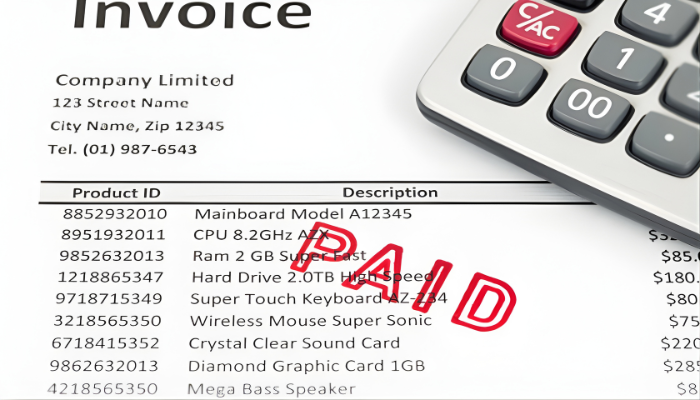
Running a construction business today means managing a constant balancing act. You’re coordinating subcontractors, ordering materials, tracking timelines, and still waiting to get paid.
In 2024, slow payments cost the U.S. construction industry $280 billion. That staggering figure isn’t just about wasted time or late fees, it’s a symptom of deeper cash flow problems that delay projects, drive up costs, and make it harder for contractors to take on new work.
Most contractors now wait 30 days or more to get paid, and 82% report more delays than they did two years ago. That kind of lag time strains everything from payroll to project pipelines, and forces many contractors to float costs with credit cards, or even dip into retirement savings, just to keep going.
Construction factoring can help. It’s not a loan. It gives you faster access to the money you’ve already earned, so you can pay expenses, take on more work, and protect your margins.
Let’s walk through how it works and what to ask if you’re considering it.

Why Cash Flow Gets Tight (Even When Business Is Booming)
Here’s why cash flow can feel upside down in construction, even if your projects are profitable on paper:
- Milestone billing means you can only invoice at certain stages
- Retainage (often 5–10%) is withheld until project completion
- “Pay-when-paid” clauses delay payment until your client is paid
- Upfront costs for labor, materials, permits, and equipment add up fast
These delays can make it tough to pay your crew, take on new work, or keep momentum going. That’s where factoring helps bridge the gap.

How Construction Factoring Works (and What It Looks Like in Real Life)
Factoring turns your unpaid invoices into immediate working capital, without taking on debt.
A factoring company (called a “factor”) buys your invoice and advances you 70%–90% of the amount, often within just a few days. Once your client pays the invoice in full, you receive the rest (minus a small fee).
What That Looks Like:
Let’s say you’re a subcontractor who just finished a $75,000 job. You’ve sent your invoice, but the general contractor uses Net 60 terms, which means you might not get paid for two months. That delay is common in construction, especially with B2B contracts, and it can make it hard to cover payroll, order materials, or prep for the next job.
With construction factoring, you could submit that invoice to a factor and get an advance of $60,000 to $67,500 (roughly 80%–90%) in a matter of days. You can use those funds immediately to pay your crew, cover fuel, rent equipment, or move forward on your next project.
When the general contractor pays in full, the factor sends you the remaining balance, minus their fee.
You're not borrowing money. You're unlocking cash that’s already yours.
And that kind of flexibility can mean the difference between keeping your timeline on track… or putting everything on hold while you wait on a check.

Choosing a Factoring Company That Understands Construction
Not all factoring companies are built the same
Construction is a complex industry with unique billing structures, compliance issues, and payment delays. Working with a factor that understands the construction world makes a big difference.
Look for a partner who:
- Knows the terms: “Pay-if-paid,” “paid-when-paid,” retainage, lien rights; these all affect cash flow timing and risk.
- Understands project-based work: Progress billing, change orders, and disputes are common. Your factor should know how to handle that.
- Can fund subcontractors or suppliers: Some companies only work with general contractors. Make sure they can fund your role in the chain.
If they’ve helped contractors like you, they’ll be better equipped to help you succeed.

Recourse vs. Non-Recourse Factoring (And Why It Matters)
There are two main types of factoring, and it’s important to know the difference:
- Recourse factoring: If your customer doesn’t pay, you’re responsible for buying back the invoice or repaying the advance. Usually lower fees.
- Non-recourse factoring: The factor takes the risk. If your customer defaults, they absorb the loss. Offers more protection, but often has higher fees or stricter terms.
In construction, where disputes and slow payments are common, non-recourse factoring can offer peace of mind, but it’s not always available for every situation. An experienced factor can help you decide which option makes sense based on your clients and projects.
What to Ask Before You Sign Anything
Before you commit, take a moment to slow down and ask the right questions. A good factoring relationship is a partnership, so transparency matters.
Here are a few smart things to ask:
- What percentage will I receive upfront?
- What’s the total fee (not just the base rate)?
- Is this recourse or non-recourse factoring?
- Are there minimum volume requirements or long-term contracts
- How quickly will I receive funds after submitting an invoice?
- Will my clients be notified or contacted? If so, how?
You deserve clear answers and a partner who supports your business, not one who buries the fine print.

The Bottom Line for Contractors
If you're running a construction business, you already know how tight margins and slow payments can make it hard to grow, or even stay on track. Construction factoring gives you the flexibility to pay your crew, order materials, and take on new jobs, without waiting months for a check or racking up debt.
It's not about borrowing. It’s about unlocking the money you’ve already earned.
If you're running a construction business, you already know how tight margins and slow payments can make it hard to grow, or even stay on track.
Construction factoring gives you the flexibility to pay your crew, order materials, and take on new jobs, without waiting months for a check or racking up debt.
It’s not about borrowing. It’s about unlocking the money you’ve already earned.
The right partner won’t just advance you cash, they’ll understand how your projects, clients, and timelines work. That understanding makes everything smoother, faster, and more reliable.
If you’re curious whether construction factoring fits your business, start by asking questions. Because good decisions start with good information.
*Originally published June 18, 2015 · Updated for clarity, accuracy, and relevance.

















